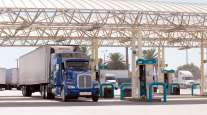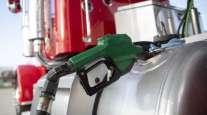Louisiana’s Fuel Tax Can’t Meet Road Needs, Audit Says

[Stay on top of transportation news: Get TTNews in your inbox.]
Revenue from Louisiana’s gasoline tax is insufficient to meet the state’s road and bridge needs, Legislative Auditor Michael Waguespack said in a report issued Sept. 6.
Waguespack noted that the state’s 20-cents-per-gallon gas tax has not been changed since 1990 and is not indexed for inflation, like it is in 22 other states, including Arkansas, Alabama and Florida.
He also said nearly $310 million had to be redirected over a six-year period from rank-and-file projects to help pay the debt for a transportation program approved by voters three decades ago called TIMED.
The report echoes arguments that have been advanced for years by state Department of Transportation and Development Secretary Shawn Wilson and others. They say the state has a $15 billion backlog of road and bridge needs that can never be met with today’s funding structure.

In this special edition of RoadSigns, hosts Seth Clevenger and Mike Freeze provide an inside look at Transport Topics’ 2022 Top 100 Private Carriers list. Tune in above or by going to RoadSigns.ttnews.com.
Efforts to boost the gas tax have failed in the Legislature, and critics say their constituents are unwilling to pay more at the pump even while recognizing the need for improvements.
Wilson said the report shows the “changing dynamics” on how transportation is funded, and that the gas tax is a shrinking source of revenue for road and bridge needs.
Work on state roads and bridges is financed through a $2.2 billion pot of money called the Transportation Trust Fund.
Aside from federal revenue — $811 million per year — money from the state gas tax accounts for $731 million annually.
The report says 33 states boosted their gas taxes from 2015-21 and that Louisiana’s rate is eighth lowest in the nation.
In addition, the state trails only Alaska and Mississippi in going the longest without increasing its gas tax.
Motorists pay 38.4 cents per gallon, with 20 cents in state charges and the rest federal levies. Of that 20 cents four cents — $122 million per year — pays for the 16 projects voters authorized in the TIMED program, two of which remain unfinished and total $570 million.
Waguespack also said the state needs to diversify its sources of transportation funding. “Other states such as Texas, Florida and Georgia have more diverse revenue streams, such as sales and use taxes and toll fees dedicated to their transportation needs,” the 59-page review says.
It says motor fuel taxes are viewed nationally as a charge to users.
“The more that someone uses the roadways the more fuel they will consume and the more they will be charged for their use of the roadways.”
The audit said that, if the state gas tax had been linked to inflation in 1990, it would be 41 cents per gallon today instead of 20 cents — raising $1.2 billion per year versus $600 million.
Waguespack said the state’s ability to address road and bridge needs is also being hurt by more efficient vehicles and the expectation that electric vehicles will be a bigger presence in the future. Those two developments will mean $564 million less motor vehicle revenue for state projects in the next decade, he said.
The report said the Legislature considered 12 attempts to increase or revamp motor fuel taxes between 2015-21, none of which passed.
Wilson led the last major push for a gas tax hike in 2017, which would have raised the rate by 17 cents per gallon, or $510 million per year.
It cleared a single House committee before dying. “It is our reality that we have moved on since there was pretty significant rejection to a gas tax,” he said.
Want more news? Listen to today's daily briefing above or go here for more info
Since 2023 is an election year no such increase is expected next year, which would mean 2025 is likely the earliest for any new gas tax debate.
Earlier this year the Legislature approved a bill that will gradually move 60% of sales tax revenue from the sale of cars and trucks to the Transportation Trust Fund, and provide about $300 million annually for roads and bridges.
The state’s nearly $15 billion backlog includes $11.5 billion for highways and $3.3 billion for bridges, according to a list compiled by DOTD in 2019.
Distributed by Tribune Content Agency, LLC




